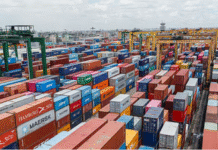Garments used by US defence to comply with the accord
The House of Representatives has approved a defence authorisation bill containing a measure that will require that military-branded garments made in Bangladesh and sold at base retail stores owned by the Department of Defence, known as exchanges, comply with an enforceable fire and building safety accord that will improve conditions in Bangladesh ready-made garment factories.
The amendment was authored by Reps Jan Schakowsky (D-Ill) and George Miller (D-Calif), said a news release of Representatives Jan Schakowsky (D-IL) published on June 14.
“We thank Chairman Buck McKeon and Ranking Member Adam Smith of Armed Services Committee for working with us to ensure that it was considered by the full House of Representatives,” said Schakowsky and Miller in a joint statement.
“Military-branded garments made for sale at base retail stores operated by the Department of Defence should uphold our nation’s core values and meet international labour standards.”
A number of garments and documents with Marine insignias were found in the rubble of the November 2012 Bangladesh Tazreen Fashions fire that killed 112 workers and reported by ABC News. Survivors have stated that the building’s exits were locked, forcing many to jump from the 3rd or 4th floor windows. Public data indicates that the Army-Air Force Exchange imported 124,000 pounds of garments last year from several garment factories in Bangladesh.
Garment worker safety in Bangladesh came to international attention after the April collapse of the Rana Plaza complex, which housed several garment factories.
More than 1,100 workers died and more than 2,500 were injured making it one of the deadliest industrial tragedies in history. So far, 50 international retail and fashion brands – mostly based in Europe and Canada – have signed onto the Accord on Fire and Building Safety in Bangladesh.
While three US brands have signed onto the accord, most other major US companies like Wal-Mart and GAP have declined to participate in the international effort to improve building safety. Specifically, the amendment says:
* Military exchanges that sell their own branded garments which are made in Bangladesh must join or abide by the conditions of the Accord on Fire and Building Safety in Bangladesh; and
* Military exchanges that license production of their own brands or sell at retail other branded garments shall provide a preference in selection of vendors to those which are signatories to the Accord on Fire and Building Safety in Bangladesh.
Source: The Daily Star










